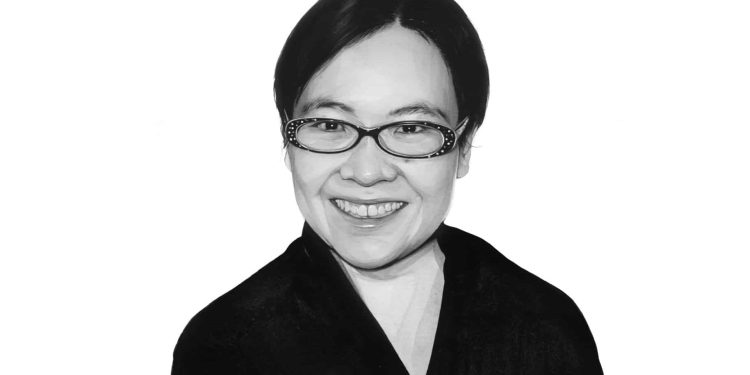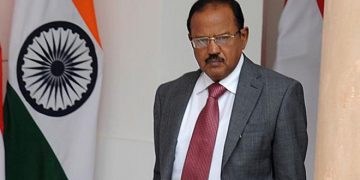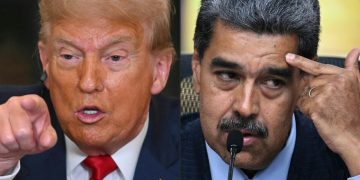By Yuen Yuen Ang
Conflicts, trade wars, inequality, and democratic decay fill today’s headlines. Each crisis appears to be feeding the next, and it can feel as though the world is coming apart. Western leaders and thinkers have embraced a single word to capture this entanglement of threats: “polycrisis.” Adam Tooze, the Columbia University historian who helped popularise the term, summarised its appeal in 2023: “Here is your fear, here is something that fundamentally distresses you. This is what it might be called.” But when fear becomes the central theme, the result can only be angst and paralysis, as Mark Leonard observed after the 2024 World Economic Forum in Davos.
Crises, however, are not necessarily followed by collapse. In fact, disruption has often paved the way for renewal – but only for those who were willing to let go of the old order. With that in mind, I see the same moment through a different lens – as polytunity, a term I coined in a November 2024 Project Syndicate commentary and then later elaborated at the United Nations Development Program. The idea is simple: Simultaneous disruptions offer a once-in-a-generation opportunity for the deep transformation of global institutions and ideas. When everything seems to crumble at once, we are forced to go beyond patchwork solutions and redesign systems from the ground up. For starters, we should recognise that the polycrisis is a Western-centric narrative masquerading as global. Two European theorists coined the word in 1993, while another European expert popularised it recently. A Western-based summit of elites gave the term a prominent platform, prompting its viral amplification by Western media, think tanks, and academics. Despite constant lamentations about a “ghastly future,” the conversation on polycrisis rarely, if ever, acknowledges the agency of the non-Western world – nowadays euphemistically called the “Global South” – or the solutions it has offered. Even as some theorists call for “Renewed Humanism,” they fail to confront the reality of a structurally unequal order and growing frustrations with it. Western dominance of international finance and institutions persists, while non-Western ideas and voices remain marginalised in supposedly global canons. The establishment favours the language of polycrisis because it obscures the root causes of global breakdowns, making them appear like natural disasters.
In reality, today’s overlapping crises can be traced back to the industrial-colonial paradigm that has prevailed since the Industrial Revolution, a worldview that defined progress as control: mechanical control over nature, and Western control over the rest of the world. To be sure, that chapter of modernisation produced immense material and social gains. But it also sowed the seeds of our current predicament. Global warming, the defining crisis of our time, is the result of an extractive industrial model, supported by a trading system in which workers in poor countries manufacture for low pay what consumers in rich countries purchase in excess. The industrial-colonial paradigm has expired in a hyper-complex, multipolar world. We need a new mindset – which I call AIM: Adaptive, Inclusive, and Moral Political Economy. To be adaptive is to govern societies not as crude machines, but as living networks that learn and evolve.
To be inclusive is to recognise that progress depends on using what you have, which means mobilising local creativity rather than copying the models of the rich and powerful. And to be moral is to acknowledge that ideas are shaped by power, and to redress this imbalance. Over the course of decades of research, I have studied China – as well as other countries – through the lens of AIM. In my book How China Escaped the Poverty Trap, I traced development not as a linear path, but as a co-evolutionary process, marked by a recursive feedback loop (Adaptive).
This analysis showed that the strategies that create new markets can look starkly different from standard prescriptions for “good institutions” (Inclusive). Then, in China’s Gilded Age, I challenged the Orientalist assumption of “Chinese exceptionalism,” revealing that China’s trajectory mirrors forgotten Western histories, not the mythologised versions taught in textbooks (Moral). AIM provides a compass for thinking and policymaking in an age when the global majority is increasingly taking ownership of its own development, rather than following Western formulas or waiting to be rescued from poverty through aid. Consider, for example, that China, India, and Saudi Arabia are investing heavily in clean energy, while sub-Saharan African countries are experimenting with energy leapfrogging. And as US tariffs shrink export options to high-income markets for late developers like Vietnam and Ethiopia, South-South trade is surpassing North-South trade in volume.
On the intellectual front, the experts most qualified to teach about the “political economy of justice” and “circular economy” are not philosophers or consultants in Europe and North America, but indigenous groups who have long protected ecosystems, despite centuries of dispossession. Polytunity is not a call for naive optimism in the face of existential threats.
Instead, it represents purposeful realism that draws on the creativity of a genuinely global community, not a single region or privileged class. Nor does it promote platitudes or vibes. Polytunity is a constructive agenda grounded in an empirical foundation. Applied correctly and seriously, it should change the way we study and tackle a range of challenges, not least development. What we are witnessing is not the end of progress, but rather the end of the industrial-colonial paradigm and the beginning of another – if we have the conviction to develop it.
The writer is Professor of Political Economy at Johns Hopkins University, where she directs The Polytunity Project and The Multipolar World & US-China Roundtables.






































